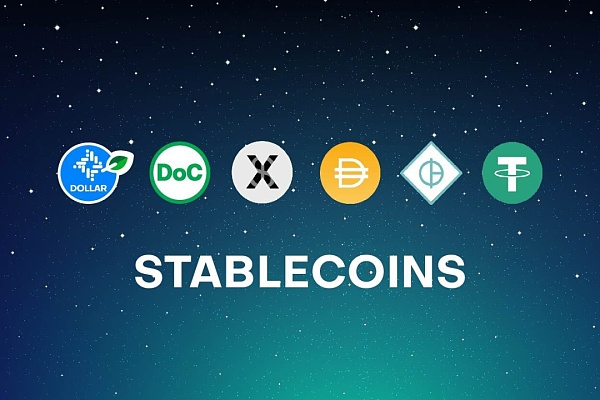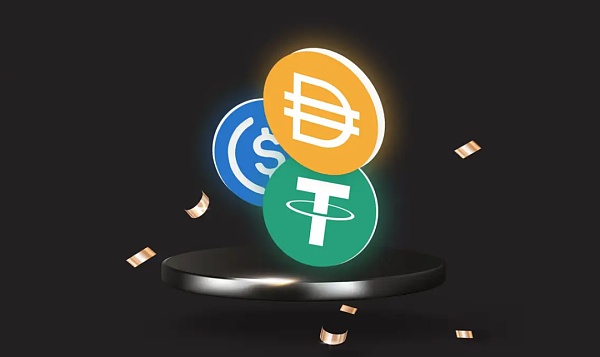Canadian Securities Regulators Release Latest Guidelines, Could Open the Door for Stablecoins?
Canadian regulators release guidelines, potentially allowing stablecoins.Compiled by: Blockchain Knight
As part of the global stablecoin development trend, the Canadian Securities Administrators (CSA), the supervisory organization responsible for regulating securities regulators in various provinces and territories in Canada, has intervened and developed new guidelines to clarify the trading and issuance of stablecoins within its jurisdiction.
Among the many assets in the crypto field with different characteristics and utilities, stablecoins, which are pegged to traditional fiat currencies or other assets, are very popular.
In its latest announcement on October 5th, CSA provided its insights on “value-referenced crypto assets”, with a particular emphasis on stablecoins.
- LianGuai Observation | What Web3 highlights will be included in the 2023 Hong Kong Chief Executive’s Policy Address?
- How should the User Privacy Policy of the NFT digital collectibles platform be written?
- Exclusive Interview with Hong Kong Legislative Council Member Qiu Dagen Policy Gap with Singapore is Only One or Two Years, Users Should Only Trust Licensed Exchanges

This clarification is an important update to its statement issued in February. In the previous statement, CSA emphasized that stablecoins may fall under the category of securities and derivatives, therefore Canadian exchanges would be restricted from trading them.
However, the latest guidelines introduce a possible shift in position. If exchanges and stablecoin issuers comply with established conditions, they can trade these assets. An important prerequisite is that issuers need to maintain appropriate asset reserves with qualified custodians.
In addition, exchanges trading stablecoins must ensure transparency and disclose relevant details about their operations, management, and asset reserves.
CSA Chair and Chair of the Alberta Securities Commission Stan Magidson emphasized the importance of this framework, stating:
“We will further refine this interim framework to ensure that investors receive the information they need about the assets they are purchasing, including the associated risks.”

Although CSA’s new guidelines seem to give the green light to the trading and issuance of stablecoins, the implications in their announcement are worth noting. CSA highlights the inherent risks associated with crypto assets backed by fiat currencies.
According to CSA, meeting regulatory requirements does not prove that these assets are risk-free or officially recognized.
The report states, “CSA reminds Canadian investors that value-referenced crypto assets, including any fiat currency-supported crypto assets that meet the interim terms and conditions, are subject to various risks and are different from fiat currencies. Meeting these interim terms and conditions for assets should not be considered an endorsement or approval of the asset, nor does it indicate that the asset is risk-free.”
Meanwhile, according to DeFilLama data, the market capitalization of stablecoins is currently $12.388 billion, a significant decrease compared to a year ago. Coincodex data shows that stablecoins account for 11.28% of the total global crypto market value.
We will continue to update Blocking; if you have any questions or suggestions, please contact us!
Was this article helpful?
93 out of 132 found this helpful
Related articles
- Exclusive Interview with Qiu Dagen Advocate of the ‘Three Arrows Three Circles’ Initiative Interprets the Latest Policies in the Hong Kong Virtual Asset Industry
- Lawyer interprets CSRC’s warning to JPEX Transition period does not mean no regulation, all exchanges must comply with new regulations.
- New cryptocurrency travel regulations take effect in the UK, comparing the similarities and differences in travel regulations among countries.
- Hong Kong proposes four innovative policies to promote economic development in the Web3 era.
- EU Cryptocurrency Regulation Entering the Era of Unity Historical Review and Future Outlook
- TaxDAO’s Response to the US Senate Finance Committee on the Issue of Taxation of Digital Assets
- US House Financial Services Committee Regulatory agencies should cooperate with Congress to establish regulatory rules.






